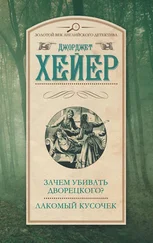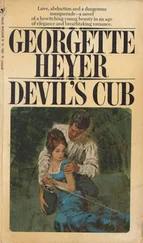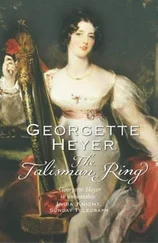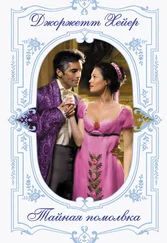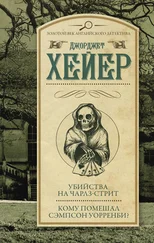Джорджетт Хейер - Penhallow
Здесь есть возможность читать онлайн «Джорджетт Хейер - Penhallow» весь текст электронной книги совершенно бесплатно (целиком полную версию без сокращений). В некоторых случаях можно слушать аудио, скачать через торрент в формате fb2 и присутствует краткое содержание. Год выпуска: 1942, Жанр: Детектив, на английском языке. Описание произведения, (предисловие) а так же отзывы посетителей доступны на портале библиотеки ЛибКат.
- Название:Penhallow
- Автор:
- Жанр:
- Год:1942
- ISBN:нет данных
- Рейтинг книги:3 / 5. Голосов: 1
-
Избранное:Добавить в избранное
- Отзывы:
-
Ваша оценка:
- 60
- 1
- 2
- 3
- 4
- 5
Penhallow: краткое содержание, описание и аннотация
Предлагаем к чтению аннотацию, описание, краткое содержание или предисловие (зависит от того, что написал сам автор книги «Penhallow»). Если вы не нашли необходимую информацию о книге — напишите в комментариях, мы постараемся отыскать её.
Penhallow — читать онлайн бесплатно полную книгу (весь текст) целиком
Ниже представлен текст книги, разбитый по страницам. Система сохранения места последней прочитанной страницы, позволяет с удобством читать онлайн бесплатно книгу «Penhallow», без необходимости каждый раз заново искать на чём Вы остановились. Поставьте закладку, и сможете в любой момент перейти на страницу, на которой закончили чтение.
Интервал:
Закладка:
He gave Mrs Eugene Penhallow’s brogues a final rub, and set them down. He didn’t reckon much to Mrs Eugene; she was a foreigner; she didn’t understand Cornish ways, nor, seemingly, want to. She didn’t like living at Trevellin, either, and made no secret of it.
Picking up one of Eugene’s shoes, and spitting on its glossy surface, Jimmy grinned, and reflected that Mrs Eugene wouldn’t succeed in moving Eugene from quarters which he found comfortable, not if she tried till Doomsday. Jimmy was contemptuous of Eugene, a hypochondriac at thirty-five, always feeling the draughts, and talking about his weak chest. He was contemptuous of Mrs Eugene too, but more tolerantly. He couldn’t see what there was in Eugene to absorb her whole attention, or to make her so passionately devoted to him. She’d got spirit, too: she wasn’t a poor downtrodden thing, like Penhallow’s wife, who allowed herself to be bullied by the Penhallows as though she was nobody. She’d stand up to Penhallow, telling him off like a regular vixen, while he lay in his great bed, roaring with laughter at her, egging her on, saying things to make her lose her temper worse than ever, and telling her she was a grand little cat, even if she didn’t know a blood-mare from a stallion, and hadn’t had more sense than to marry a nincompoop like Eugene.
Jimmy turned his attention to Bart’s riding-boots, which bore every evidence of Bart’s having walked all about the farm in them, which he probably had. Bart, to whom the reading of a book was a penance, and the writing of a letter a Herculean labour, was going to be a farmer. No doubt, thought Jimmy, he planned to settle down at Trellick Farm with Loveday one of these fine days. Trellick was earmarked for Bart, but catch Penhallow handing it over to him if he married Loveday! He might whistle for it then: in Jimmy’s opinion he wouldn’t in any event make a go of it. He’d no head, not as much sense as Conrad, his twin, though from being the hardier and the more rollicking of the two it was he who always took the lead, and set an example for the other to follow. They were the youngest of Penhallow’s first family, and had reached the age of twenty-five without having achieved any other distinction than that of being two of the most bruising riders in the county, and of having placed their parent in the position of having to pay an incredible number of maintenance sums on their behalf at an age when most young gentlemen were innocently occupied at school. Not that Penhallow grudged the money. He himself, with a fine freedom from restraint which savoured of an earlier age, had done what lay in his power to perpetuate the distinctive Penhallow cast of countenance, and the sight of an unmistakable Penhallow amongst a knot of village brats seemed to afford him a degree of amusement which scandalised, and indeed alienated the more virtuous of his acquaintances.
The wonder was, thought Jimmy, turning it over in his curious mind, that Bart, whom anyone would have thought the spit and image of his father, should have taken it into his head to marry a girl like Loveday. She was a cunning one, sure enough, looking as though butter wouldn’t melt in her mouth, and twisting Bart round her impudent finger.
Jimmy picked up Bart’s second boot. His dark glance fell on Conrad’s, standing next in the row, and the sight of them, setting up a train of thought, made him smile to himself with a kind of malign satisfaction. Conrad, the cleverer yet the weaker of the twins, had for his brother a jealous devotion which, though it was undisturbed by Bart’s many casual village affairs, would be likely to prove a thorny barrier in the way of his marriage to Loveday or any other young woman. Maybe Conrad already guessed what was in the wind: Jimmy didn’t know about that, but it wouldn’t surprise him if he found that Bart had taken his twin into his confidence. In Jimmy’s opinion he was fool enough for anything, too thickheaded to realise that Conrad, adoring him, vying with him, quarrelling with him, would be ready to play any dirty trick that would rid him of a rival to his possession of him.
He was turning over in his mind the possible results of telling Penhallow what was going on under his roof when a footfall sounded on the flagged passage, and Loveday Trewithian came into the room, carrying the lamp from her mistress’s bedroom.
Jimmy scowled at her, but said nothing. Loveday set the lamp down on the table beside the others, and turned, smiling, towards him. Her warm brown eyes flickered over the shelf; he knew her well enough to be sure that the absence of her own shoes from the row had not escaped her, but she gave no sign. She watched him, at work on Bart’s second boot, and said presently in her rich, soft voice: “You do polish them clean-off, Jimmy.”
He was as impervious to her flattery as to the seductive note in her voice. “I won’t lay hand or brush to yours,” he said unamiably. “You can take ’em away.”
Her smile grew. She said gently: “You don’t need to be so set against me, my dear. I won’t do you any harm.”
He made a sound of derision. “You do me harm! That’s a good ’un!”
Her smile became a little saucy. “Aw, my dear, you’re jealous!”
“I ain’t got nothing to be jealous of you for, you dressy bit! If I was to tell the old man the tricks you’re up to with that Bart you’d smile ’t ’other side of your face!”
“Mister Bart!” she corrected mildly.
Jimmy sniffed. He turned his shoulder on her, but watched her out of the corners of his eyes as she bent to pick up her shoes from under the shelf.
“To be sure, I do be forgetting you’re in a way related, my dear,” she murmured.
The taunt left Jimmy unmoved. He said nothing, and she went away, carrying her shoes, and laughing a little. It annoyed him that she showed no resentment of his churlishness; he thought she was a poor-spirited girl, or else an uncommon deep ‘un.
He had not quite finished polishing Conrad’s boots when he heard Reuben Lanner shouting for him. In a leisurely way he went out into the passage. Reuben, a spare, grizzled man in a rather worn black suit of clothes, told him that he would have to take the Master’s breakfast in to him.
“Where’s Martha?” asked Jimmy, not because he didn’t want to wait on Penhallow, but because he was naturally disinclined to obey Reuben.
“No business of yours where she is,” responded Reuben, who, in common with the rest of the household, disliked Jimmy cordially.
“I ain’t finished the boots, nor I won’t for ten minutes.”
“That’ll do well enough,” said Reuben, rather disappointingly, and vanished through one of the doorways farther down the passage.
Jimmy went back to the boot-room. The command to carry Penhallow’s breakfast to him did not surprise him, any more than a command to take up Mrs Penhallow’s tray would have surprised him. There were a number of persons comprising the domestic staff at Trevellin, but nobody had any very clearly defined duties, and no member of the family would have been in the least astonished to have found himself waited on at table by the kitchenmaid, or even by one of the grooms. Nor would the servants have thought of objecting, in any very serious spirit, to being obliged to do work for which they had not been engaged. Reuben, and Sybilla, his wife, had been in Penhallow’s service for so long that they seemed to have no interests beyond the confines of the Manor; Jimmy was bound to the family by strong, if irregular, ties; and the maid-servants, all of them locally born girls, had only the vaguest ideas about their rights, and would not, in any case, have preferred to work in more orderly but stricter establishments than this sprawling, over-large, ill-run, but comfortably lax house.
Читать дальшеИнтервал:
Закладка:
Похожие книги на «Penhallow»
Представляем Вашему вниманию похожие книги на «Penhallow» списком для выбора. Мы отобрали схожую по названию и смыслу литературу в надежде предоставить читателям больше вариантов отыскать новые, интересные, ещё непрочитанные произведения.
Обсуждение, отзывы о книге «Penhallow» и просто собственные мнения читателей. Оставьте ваши комментарии, напишите, что Вы думаете о произведении, его смысле или главных героях. Укажите что конкретно понравилось, а что нет, и почему Вы так считаете.



